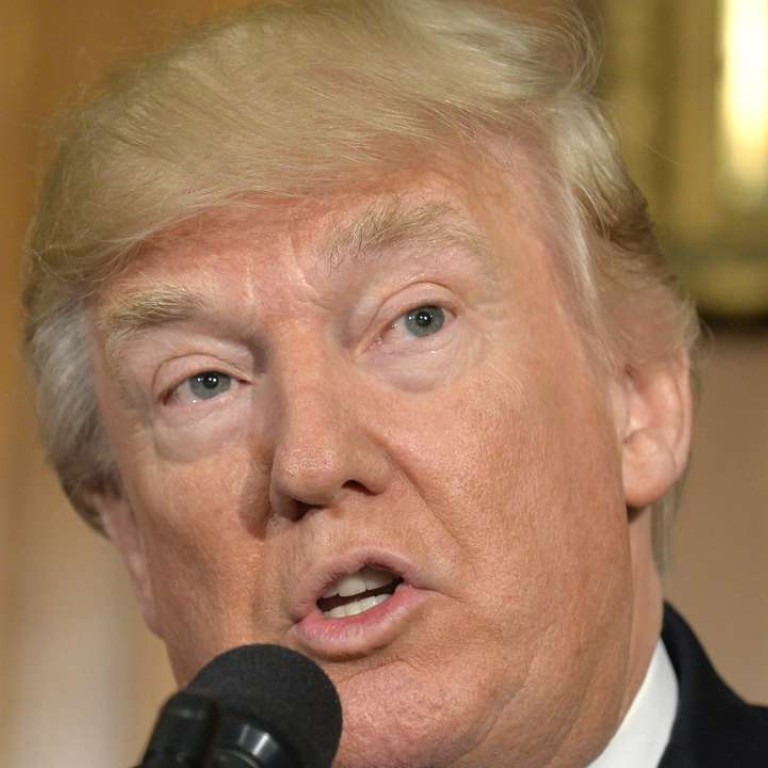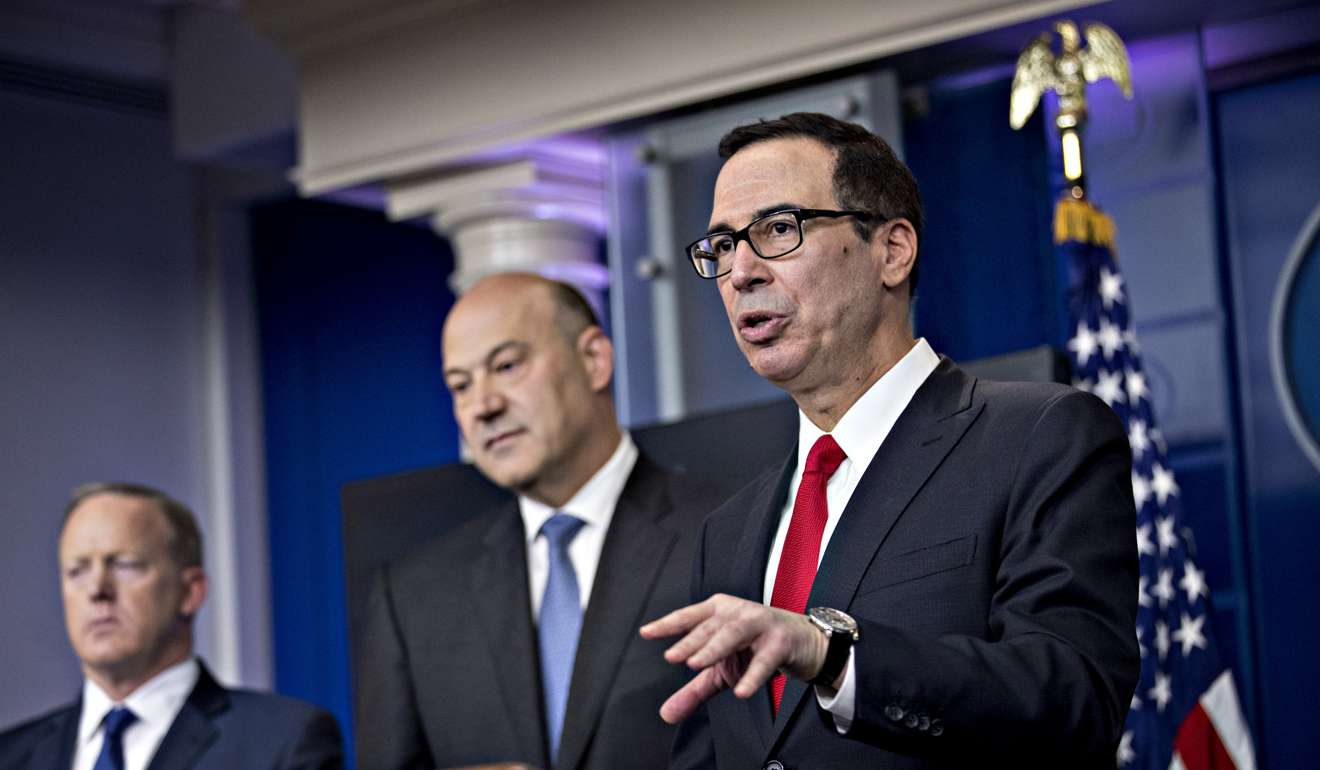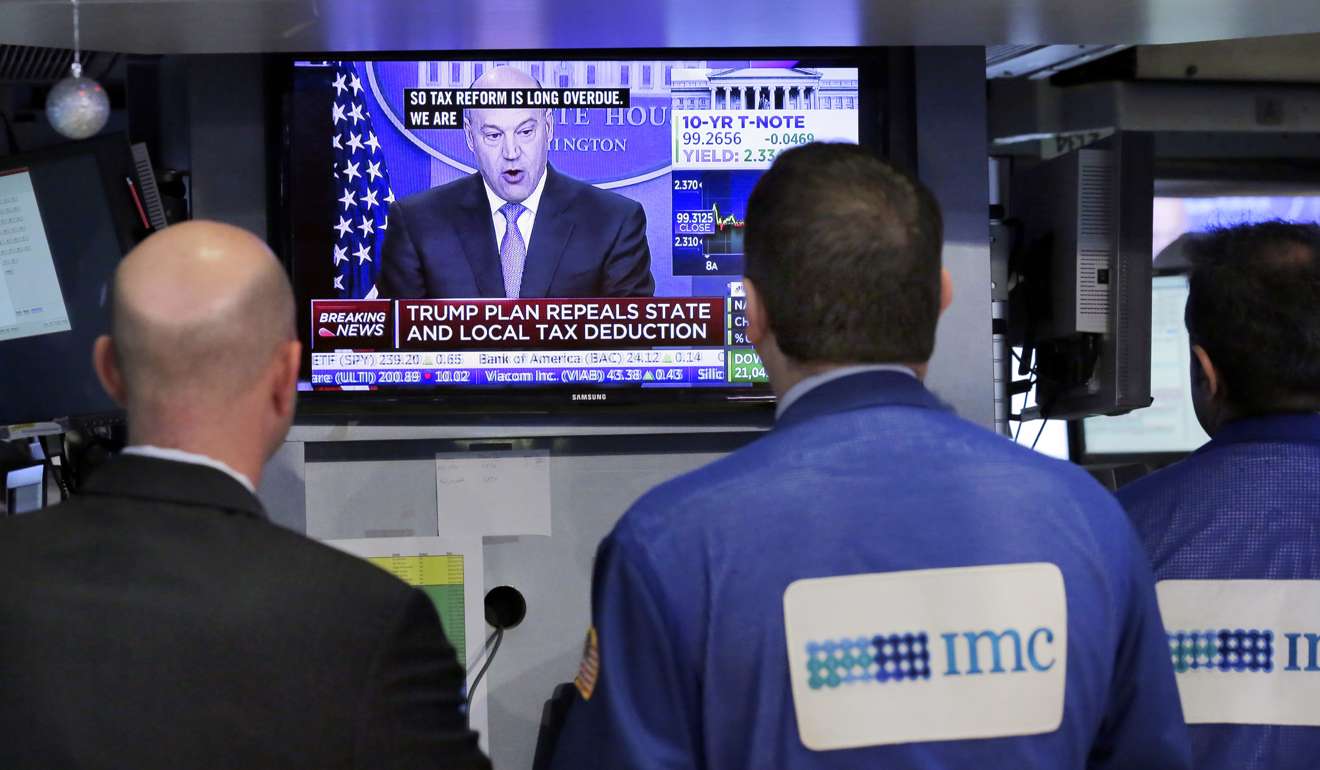
Trump unveils plan to slash corporate tax rate to 15 per cent in ‘biggest tax cut’ in US history
Trump administration says plan will lower US corporate rate to one of the lowest in the world
US President Donald Trump announced on Wednesday he would press for a sharp cut in corporate taxes, a move that would slash the rate companies in the US pay the federal government to 15 per cent for revenues earned onshore and zero for most offshore income.
The tax reform proposal is part of efforts to boost US economic growth to at least 3 per cent, Treasury Secretary Steven Mnuchin told reporters in Washington DC, adding that the average corporate income tax rate of 35 per cent “is perhaps the most complicated and uncompetitive business rate in the world.” US gross domestic product grew 2.1 per cent year on year in the fourth quarter of 2016.
“Not a surprise the companies leave trillions of dollars offshore,” Mnuchin said.
To help offset revenue lost to tax cuts, Trump’s proposal will eliminate personal income tax deductions except for mortgage interest and charitable donations, a one-time tax on earnings that US companies have in offshore accounts, and an elimination of “tax breaks for special interests”.

“Many [tax economists] argue that the US’s top statutory corporate income tax rate of 35 per cent places firms at a competitive disadvantage against their foreign competitors,” said Sebastien Bradley, an associate professor of economics at Drexel University’s LeBow College of Business in Philadelphia.
“In that light, a reduction in the corporate tax rate to 15 per cent would mitigate many of the worst incentives of the current system (such as the incentives to locate real investment and reported profits in low-tax foreign jurisdictions) and help ‘level the playing field’ between US corporations and their competitors overseas.”
Trump expects his proposal to “lower the business tax rate from one of the highest in the world to one of the lowest in the world”, according to a summary of the proposal distributed to reporters.

Some lawmakers criticised Trump’s plan soon after the announcement, particularly a reduction in the number of income brackets and a cut in the top rate from 39.6 per cent to 35 per cent.
“At a time when we have a rigged economy designed to benefit the wealthiest Americans and largest corporations, President Trump’s new tax plan would only make that system worse”, said Bernie Sanders, the Vermont Senator who lost to Hillary Clinton in the 2016 presidential election primaries.
“He would slash taxes for himself and his billionaire friends and significantly increase the deficit, while doing little to help rebuild the collapsing middle class,” Sanders said.
The plan also repeals the Alternative Minimum Tax, which forced wealthier individuals to pay higher tax bills, and the estate tax, which applies to estates worth more than US$5.4 million.
“The Administration’s position appears to be that they would be counting on increased economic growth to offset any revenue losses”, said Drexel University’s Bradley. “In practise, there is little evidence (in the US or elsewhere) of tax cuts paying for themselves in this manner, and if the Trump Administration and Republican Congress are serious about avoiding government deficits, they will need to implement serious new revenue-raising provisions.”
Trump will hold “listening sessions with stakeholders” and will confer with members of the House of Representatives and the Senate throughout the month of May to finalise a plan that can pass both Congressional chambers, according to the document.

